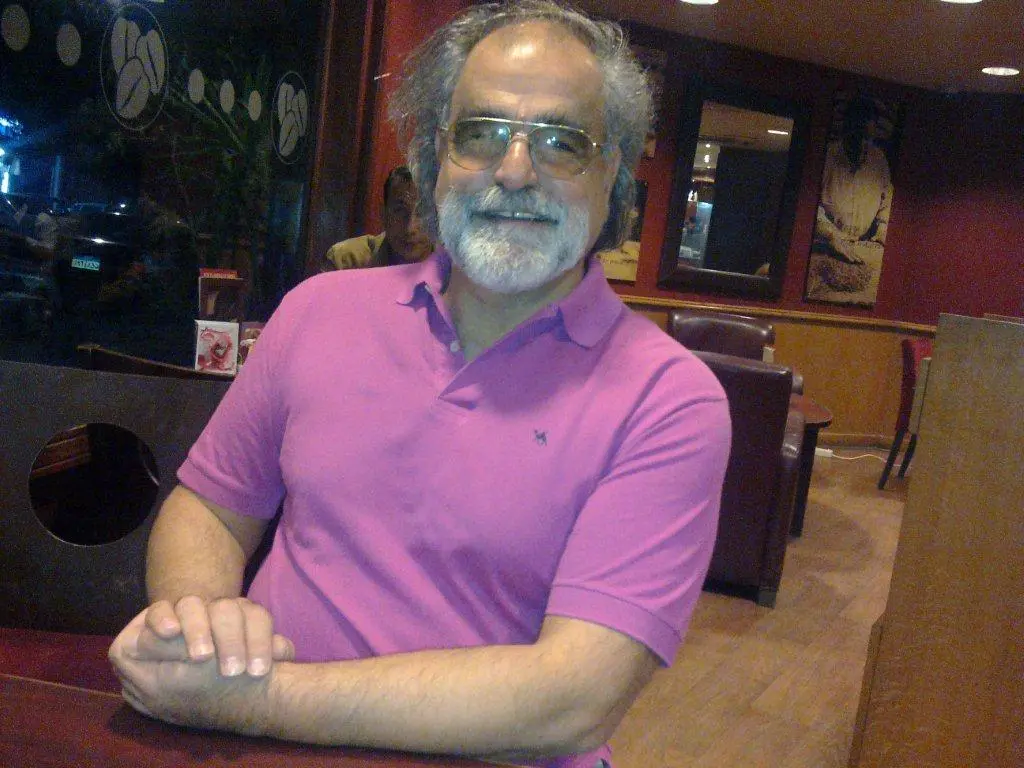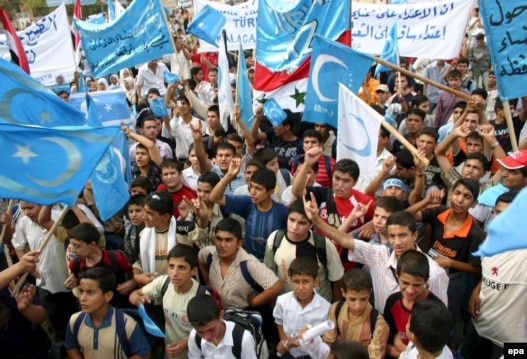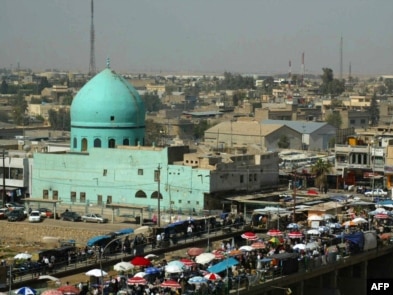NYTurkishtimes published.
Evaluation of the Turkmen policy of Turkey
S O İ T M
Iraqi Turkmen Human Rights Research Foundation
There are several important factors which influence the development of the Turkmen political structure negatively, such as; the long history of isolation, exposure to the fierce assimilation policies and remaining in between two stronger nationalist communities; the Arabs and Kurds.
However, disregarding the Turkmen communal interests and the absence of co-operation and solidarity between Turkmen political groups can be considered as the most destructive factors to the Turkmen political system since the establishment of the Safe Haven area, particularly after, the occupation of Iraq.
Today, the political authority of the Iraqi Turkmen is feeble and has no power of influence.
Being the most powerful and receiver of sizeable external support, the Iraqi Turkmen Front (ITF) holds the primary responsibility for the retardation of the Turkmen political system. [1]
ITF:
* Is one of the most important obstacles in front of reforming the Turkmen political system. It refuses calls for any type of reform. The Turkmen Council which is administered by the same source is a poppet organization representing only one political view
* Is dominated by several families
* Suffers from destructive internal disagreements
* Could not gain and/or lost the support of most of the Iraqi Turkmen population and the support of the Iraqi Turkmen intellectuals and politicians.
* Is marginalized inside and outside Iraq
* Deliberately and ignorantly introduced the fundamentalist – secular discrimination into the Turkmen politics
* Its’ employment policy in the administration has:
o Openly diverted the power of the ITF, frequently, against the Turkmen national interests
o Made the Turkmen of Iraq fail to get political and logistic support from several important national, regional and international powers
The continuation of this state of affairs is certainly going to further deteriorate the Turkmen political structure and expose the Turkmen population to further disappointments while several serious challenges are approaching in the upcoming periods.
The important characteristics of the ITF system, which renders it ineffectual and inhibit its development, are:
* Several organs elect themselves, for example, the Turkmen council elects the delegation of the Turkmen Congress which elects the Turkmen council. As a result, the Turkmen council elects itself.
* The Turkmen council elects the nine members of the ITF’s executive board which elects the president of ITF. The president has absolute executive control and dominates the decision making mechanism.[2]
* The Turkmen council which was instituted as the highest Turkmen authority, remained ineffective.
* Some important offices were headed by members of the same family, in some other offices there are several members from one family.
* Dramatic variations between the expenditure of the offices.
* The expenses are greatly inflated which makes great corruptions certainly possible.
* Even simple disloyalty to the ITF will result in marginalizing or dismissing the person and his relatives who work in the ITF
The source of finance of the ITF is Turkmeneli Foundation; its headquarters is in Ankara. When the present president of ITF was elected in 2005 (in fact was appointed!) one of his relatives was appointed as the head of the Turkmeneli Foundation.
Certifying authorities of finance expenditures from the Turkmeneli Foundation are as follows: First, the owner of the ITF should agree to any type of spending, [1] then the president of the ITF and then the president of the Turkmeneli Foundation.
Continued accusation of the Turkmeneli Foundation and the Iraqi Turkmen Front for corruptions and maladministration are resulted also from the followings:
The inflated spending during the unplanned and ill-programmed annual summer meetings of the ITF for the Diaspora Turkmen organizations in Ankara.
* The huge spending during the protest meeting in Ankara in spring 2007
* The spending during the Iraqi elections of 2005.
* The great differences between the budgets of the offices of the ITF.
No doubt that the freedom of expression, speech and press is considered a blessing in a democracy. This is built on the assumption that projects can be improved and developed, issues can be treated and problems can be solved if discussed.
Due to several factors, the Turkmen community, almost completely, does not publish self-criticism; furthermore, those who do it, meet great resistance. This can be considered as one of the major factors which had deteriorated the Turkmen political structure and inhibited the developments. Today, the Turkmen political structure is powerless and vulnerable.
Nowadays while the provincial elections are approaching, the Turkmen intellectual, writers and politicians are all silent about the clearly expectable defeat in the elections.
The failure of the ITF had been proved during the Iraqi general elections of 2005. The ninety thousand votes which ITF got in the election of January 2005 was decreased to seventy thousands in the election of December 2005. Worth noting that ITF:
Claims that it is the only legal representative of the Turkmen of Iraq
* Was the only Turkmen list in the aforementioned elections
* Estimates the number of the Iraqi Turkmen around 3 millions.
The Turkmen population which suffers from several threatening challenges and weaknesses of its’ national power centers, has been obliged to accept the defeat. Disregarding the huge threats to the Turkmen national rights, the ITF political system remained unchanged.
Today, the Turkmen of Iraq prepare to participate in the upcoming elections by the same defeated ITF:
The absence of Turkmen public support to the ITF can be clearly detected by a simple poll in the streets of Kerkuk
* In the other Turkmen regions, the ITF suffer from even bigger problems
In this state of affairs, the expected number of Turkmen representatives in the Iraqi parliament and in the city councils will be:
* Severely decreased
* Disproportional with the size of the Turkmen in Iraq.
* Insufficient to defend the Iraqi Turkmen and not able to deal with the huge violation of the Turkmen rights
Therefore, the authorities of, particularly the owner, [1] of the ITF will hold the historical responsibilities of the defeats and losses from which the Turkmen of Iraq suffer since the early 1990s.
Wealthy cultural heritage, high percentage of educated people, the large population size and the strategic geopolitical region can be considered as the important factors which made the Turkmen of Iraq resist several decades of suppression and preserve their language and culture. Consequently, presence of powerful Turkmen political structure will help to balance the national conflicts inside Iraq and support the national and regional stability.
The revival of the Turkmen Council and freeing it from subordination, is one of the options to rescue the Turkmen political system. The Turkmen intellectuals, particularly those who played important roles in defending the Turkmen rights during the most dangerous Baath period, should be allowed to participate in the Turkmen political processes and compete for the membership of the Turkmen council. [3] The sectarian and regional discriminations in Turkmen policy should be abandoned. The Turkmen council should be opened to all the Turkmen political and civil society organizations. The Turkmen Shi’a parties, which have important numbers of parliamentarians, should be included in the Turkmen council. The Turkmen television should be handed to the professionals and sufficiently staffed. The political parties should enlarge the basic substructures and number of members. The support of the national and regional powers should be ensured.
To remove the impression of political loyalty and to increase the number and efficacy of the Turkmen civil society organizations, the funds should be established to enable them to realize their projects. The Turkmen institutions should be established and/or improved, for example, media, culture, sport, music and literature.
_______________________
Reference
* The Iraqi Turkmen front was founded by the Turkish army in 1995.
* In April 2008 and due to the despotic administration of the president of ITF, seven of the nine members of the executive board published a press release and ousted the president. Ankara refused to accept the ousting operation and demanded the change to be done through the 5th Turkmen Congress. Two Turkmen sent from Ankara and with continuous remote control, the fifth Turkmen Congress was organized, like a staged theater play. During the Congress, four of the seven members of the executive board, who expelled the ITF president and were presidents of four political parties under the ITF umbrella, were expelled out of the ITF. The other three, who were the heads of ITF offices in different regions, were silenced. The president remained unchanged.
1. The largest numbers of well known Turkmen politicians, writers, high-ranking officials, academics, high-ranking retired officers, legislators could not have opportunity to participate in the Turkmen political processes.




 Turkomans demonstrate in Kirkuk in 2006, demanding recognition of their ethnic group’s status in the disputed region.
Turkomans demonstrate in Kirkuk in 2006, demanding recognition of their ethnic group’s status in the disputed region.




